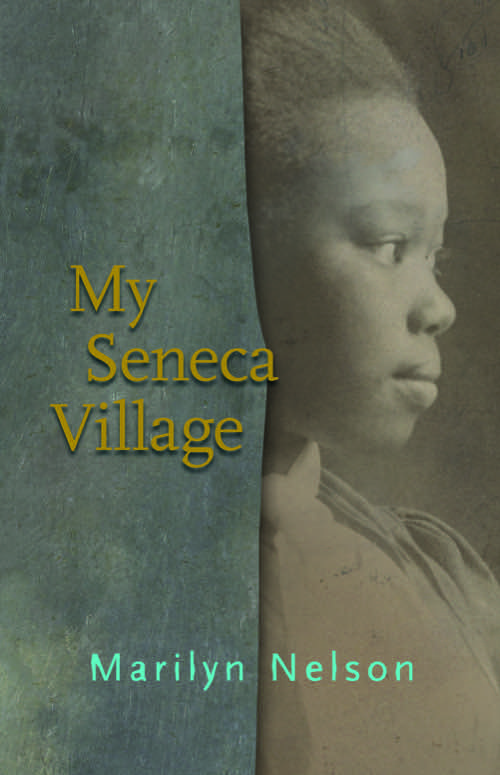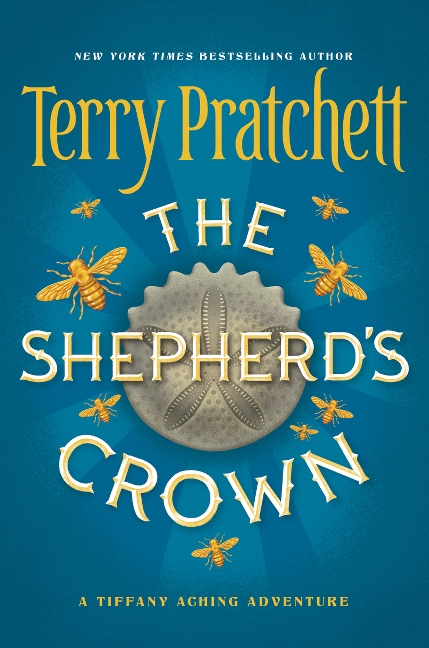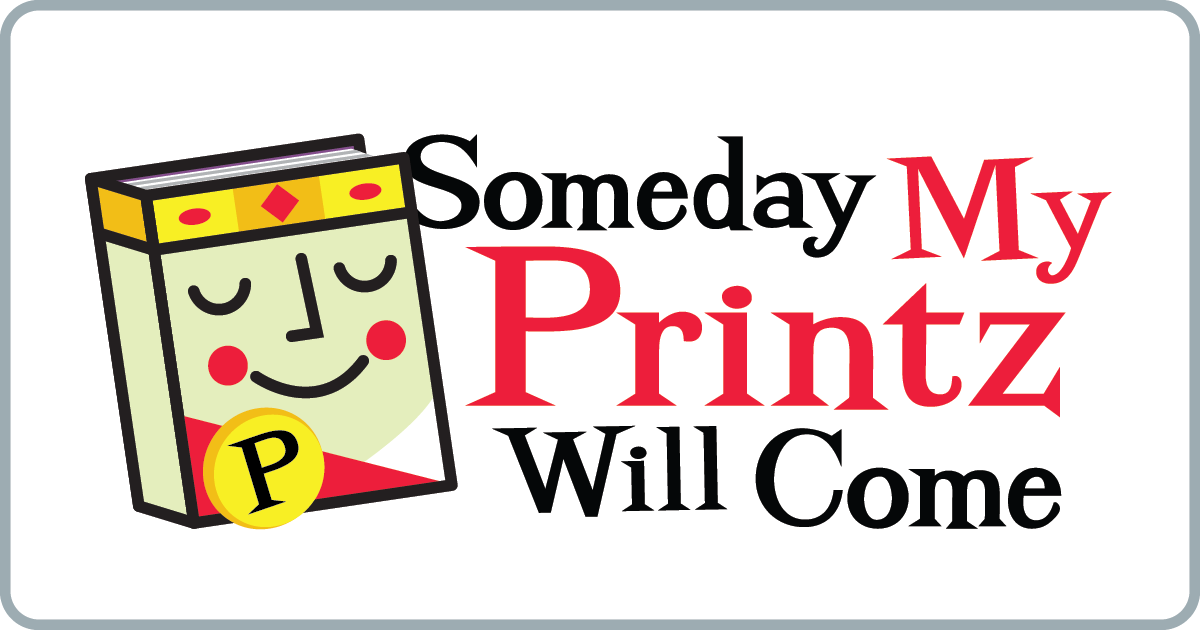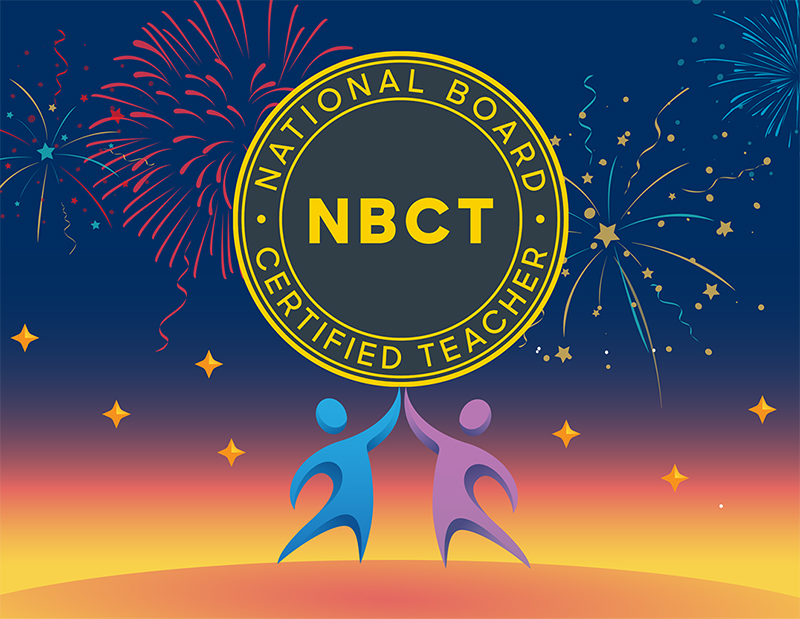SCROLL DOWN TO READ THE POST
Can Lightning Strike Twice?
 Previous winners, new books… Sometimes it means the magic has happened again, and a lucky (well, and talented) author will receive a second (or third) golden P sticker.
Previous winners, new books… Sometimes it means the magic has happened again, and a lucky (well, and talented) author will receive a second (or third) golden P sticker.
More often, the magic doesn’t happen again, but previous winners have a proven track record so it’s a pretty sure bet anything from a previous winner received at least a look from one or more RealCommittee members. Which means we, in our endless stalkery committee-emulating ways, also did our best to make sure we read everything out in 2015 from a previous Printz winner or honoree. And there were a lot this year.
We’ve covered several of these already (see: books from Almond, Almond again, Anderson, Bray, Lanagan, Mackler, Myers, Schmidt, Smith, and Wein), but not a few of the biggest ones. Until today (she says portentously).
ADVERTISEMENT
ADVERTISEMENT
 These Shallow Graves, Jennifer Donnelly
These Shallow Graves, Jennifer Donnelly
Delacorte Press, October 2015
Reviewed from ARC (2 stars)
I liked this book. Truly. It’s meticulously researched and tightly plotted. Jennifer Donnelly is an author who really cares about the details of the era in which she’s writing. All of the research pays off in beautiful world building and authentic characters. Jo is an interesting protagonist whose struggle between what she wants and what society expects of her is well-executed even though most readers will have an idea how her journey will end.
Where Donnelly stumbles is in the synthesis of action and information to understand the story. The plot is like Sweeney Todd, the mystery storyline in any Harry Potter, Titanic (yes, the James Cameron film; don’t judge), and Mansfield Park all rolled into one. Plus every Edith Wharton novel ever. It’s certainly exciting and oh my, can Donnelly write a romance, but the text very clearly projects the narrative arc and themes. I absolutely enjoyed reading this book and spending the time with Jo, but the lack of subtlety keeps it out of Printz territory. —JP
 I Crawl Through It, A.S. King
I Crawl Through It, A.S. King
Little, Brown, September 2015
Reviewed from final e-copy (4 stars)
I have no idea what to make of this book.
My first draft of this review said only “WTF book?” and while I can expand on that thought, in the end it’s still pretty much the heart of what I am thinking about.
First: this is surrealist or maybe absurdist. It’s not magic realism, although I know some readers and reviewers have called it that. It’s bizarre and I sort of hated it but then I couldn’t put it down (although only because I made myself keep reading for the first 100+ pages). It’s deeply flawed and also amazingly ambitious. The writing is crisp, the characters strange but also sympathetic, and the plot, such as it is, seems to be a commentary not just on trauma (although that’s the obvious ur-point of the book) but also on standardized testing and friendship and maybe a little bit on nudity, but that might just be metaphorical.
The piece that didn’t work for me was the whole bit about testing; I think King is making a parallel of high stakes testing and pointless assessments that only assess our test taking skills with actual trauma, the kind that follows (spoiler alert) fatal car accidents or rape. But the parallel falls flat, although the satiric portrait of the principal (traveling by hole and tunnel, nearly buried in paperwork, refusing to have a phone because it just rings with new things to be dealt with) was great, as was the milling students who evacuate day after day for false bomb threats. The testing never feels important enough for the presence it has in the text, and creates a noisiness that drowns some of the signal.
I am still veering between finding this wildly impressive and thinking I could just go watch Heathers again. If lightning is going to strike again, King may stand a chance with this — but it’s also off-putting and impenetrable enough that maybe not. I just can’t tell; like last year’s Grasshopper Jungle, this needs at least another read, and I am less than 100% sure it will stand up to it, although at the same time I think the metaphors will begin to make more sense. The comments are open and really this is the book we need to talk about. So illuminate me! —KS
 There Will Be Lies, Nick Lake
There Will Be Lies, Nick Lake
Bloomsbury, January 2015
Kind of (but not really) reviewed from ARC (1 star)
I have an advanced copy of There Will Be Lies. In it, there’s a letter from Nick Lake to readers explaining the origin of the novel—he was in Arizona and a coyote ran by, then stopped to stare at him. He was moved by this incident and inspired to write the first draft of this novel. It’s after he wrote that draft that he found out that there is Navajo legend about coyote crossing a person’s path as a bad omen. He was excited that the novel he had already written worked nicely with the Navajo legend. This was not helpful information; in fact, it put me off reading the book. He doesn’t explain how he found out about this legend, his research, or revision process to properly utilize Navajo culture. Nope.
(Note: the letter is not in the finished book. Had I only interacted with the finished copy I wouldn’t have had that initial bias; however, any book in which it’s evident that research would (or should) have been a part of the writing process benefits from backmatter explaining the process.)
I read some pages, skimmed a lot, but the book didn’t grab me. No surprise since I was biased against it. I set it aside for other books. And then as months went by, it turned out that the novel received only one star and other reviews didn’t encourage me to go back to it. After reading Debbie Reese’s commentary on Mosquitoland, I was curious to read her thoughts on There Will Be Lies. Her thorough review of the book points to many inconsistencies, bad research, and misappropriation of an indigenous culture. Other reviews note that it’s a good thriller with a compelling protagonist. That doesn’t compel me to try again. Am I wrong? —JP
 My Seneca Village, Marilyn Nelson
My Seneca Village, Marilyn Nelson
Namelos Press, June 2015
Not Reviewed (4 stars)
It looks like we won’t manage to get to My Seneca Village — procuring a hard copy proved difficult (no copies in stock anywhere in Manhattan), and there was no e-text available, so this kept being pushed further down the timeline because it wasn’t readily to hand. I was a huge fan of last year’s How I Discovered Poetry and have admired all of Nelson’s previous history poetry collections (especially 2006 honoree A Wreath for Emmett Till), so I’m sad to have missed reading this one. Happily I have faith that the real committee was less lazy than I. In lieu of a review from us, I’ll point you to Heavy Medal, where Jonathan said some nice things about it, and then more nice things. The major question on the table there is whether this is a children’s book, but that’s actually in it’s favor from a Printz perspective. —KS
 The Shepherd’s Crown, Terry Pratchett
The Shepherd’s Crown, Terry Pratchett
HarperCollins, September 2015
Not reviewed (3 stars)
Look, I’ll be honest; Terry Pratchett has been my favorite author since I was 12 and I ended up with a copy of The Colour of Magic and a free afternoon. I loved him, I mourn him every day, and I will absolutely not read the last new book I get from him for the awards season because I don’t want to read it with an eye towards flaws or with my third thoughts focused on what I’ll say about the book after I finish it. No, this book I am reading for me — after the awards are announced. If it garners Printz recognition, that would be lovely. It would be great to see the Discworld books garner that kind of recognition (Pratchett’s two previous Printz honors were for alternate history books, not Discworld books). But really I don’t care because Pratchett’s books already mean everything to me (all of ’em. Even Strata. Even The Unadulterated Cat.) And no award changes that.
(Also, fun fact: I got to make the phone call when Nation was an honor book because maybe it came up that I had feelings and my Printz committee chair was awesome. So my Pratchett Printz dream? I lived it. In technicolor.) —KS
 Carry On, Rainbow Rowell
Carry On, Rainbow Rowell
St. Martin’s Griffin, October 2015
Reviewed from final copy (3 stars)
WHY DID I WAIT SO LONG TO START THIS? I’m only halfway through Carry On and I have never wished so hard to be able to go back in time to read this book on its pub date. Alas, regrets…
Here’s what I can say. I think Carry On is audacious, fun, and meta. Rainbow Rowell’s voice is so unmistakably her own but she’s playing in a brand new sandbox. How can a novel about fictional characters from a fake fantasy series within another of the author’s books feel new? Magic.
ADVERTISEMENT
ADVERTISEMENT
Rowell’s magic is in her ability to take characters from the Gemma T. Leslie Simon Snow series in Fangirl and make them her own. That must sound odd, because how can an author take “ownership” of characters that, when it comes right down to it, she created? Maybe we just didn’t see enough of Simon and Baz for them to feel like Rowell characters, but in Carry On they are undoubtedly hers; they don’t sound like Gemma T. Leslie anymore (who sounded like J.K. Rowling, of course).
There’s a lot going on thematically but since I’m only partially finished I can’t say how everything comes together. The power of words and the way that language fuels magic in this world is, at this point, the thread I’m most interested in seeing through. I’m also concerned though about pacing. The major burden on the text is having to establish what would have been (presumably) content to fill seven books. The action hasn’t been slowed down too much—so far it has felt like a slow burn—but that could change in the book’s second half. When I finish, I’ll likely post an addendum in the comments. —JP
Ghosts of Heaven, Marcus Sedgwick
Roaring Brook, January 2015
Reviewed from ARC (3 stars)
Oh Marcus Sedgwick.
Here’s what I love: the sheer exuberance of the literary experimentation Sedgwick embraces.
Here’s what I don’t love: feeling like the only point of the book was the experimentation.
Ghosts of Heaven revisits many of the ideas that supported Midwinterblood: interconnected stories spanning time. Repeating images and motifs. A book constructed to allow an atypical reading order (first to last or last to first, and in this case Sedgwick says the four sections can be read in any order at all and the story changes accordingly). Conceptual elements deeply rooted in myth, fantasy, and lore. Historical accuracy that is not entirely on point but works well enough if you just run with it. (I should probably point out here that while I don’t always think he pulls his ideas off, I do have a brain crush on Sedgwick because he is consistently turning out unexpected, interesting books that elicit an intellectual response and often an emotional one as well.)
And actually, he does it all better in this outing, other than the poetry of the first section; the scansion was frequently unbalanced. The spirals are more interesting than moons and rabbits, and the idea of immortality is far subtler here (spirals and DNA, rather than, you know, actual life everlasting). But it’s the Looking for Alaska/Paper Towns issue all over again. Paper Towns is a superior book in terms of execution, but it ended up feeling like a rehash for many readers, which presumably makes it harder to recognize as an award-worthy text. I didn’t love Ghosts of Heaven, but I can admire the hell out of it — even if the RealCommittee feels the same, will this seem stale only two years after Midwinterblood‘s win? —KS
Whew! That was a lot of books. We’re going to have so much to discuss in the comments!
Filed under: Books to look for, Contenders, Fiction, Nonfiction
About Someday
ADVERTISEMENT
SLJ Blog Network
Name That LEGO Book Cover! (#53)
Cover Reveal and Q&A: The One and Only Googoosh with Azadeh Westergaard
K is in Trouble | Review
A Reading Community: A Love Letter to Local Independent Bookstores, a guest post by Heather Del Piano
The Classroom Bookshelf is Moving
ADVERTISEMENT
ADVERTISEMENT








